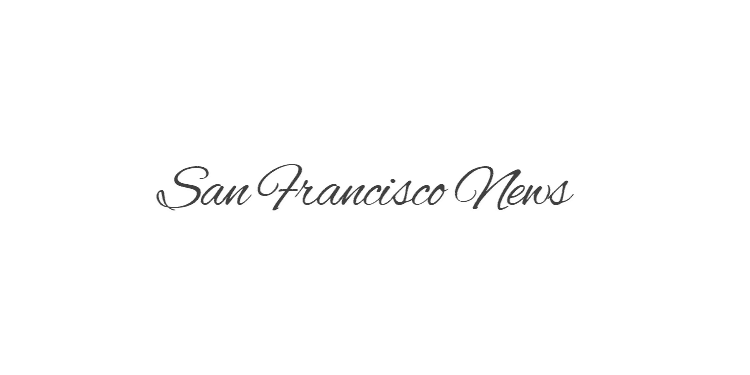Everyone loves to party, and they especially love to get festive outside. At least that’s the growing consensus in San Francisco, across California and in a number of other states.
A new bill introduced by state Sen. Scott Wiener could spark an endless outdoor party where it would be legal to consume alcohol in downtown San Francisco as soon as the end of the year. The city hopes the legislation will spur a full-blown urban recovery, and similar laws in other states are at least moving the needle.

Bisnow/Stacey Corso
The city is proposing an entertainment zone on Front Street between California and Sacramento streets in the Financial District.
Proposed late last year, Senate Bill 76 would allow the creation of entertainment zones, city blocks where bars and restaurants can sell open-container alcoholic beverages for consumption. In January, Wiener extended the scope of the proposed legislation with a second bill, SB 969, that would enable the creation of entertainment zones in other California cities.
The first San Francisco entertainment zone would be on Front Street, bordered by California and Sacramento streets, a Financial District block that includes Harrington’s Bar & Grill and the historic German beer hall and restaurant Schroeder’s. Both establishments have been around since the city’s Barbary Coast days. American pub Royal Exchange and Bluestone Lane Coffee House are also in the proposed district.
The concept has garnered the support of San Francisco Mayor London Breed.
“San Francisco’s Downtown is seeing a new surge of excitement, and we are thrilled to be the first city in California to take advantage of this new law to bring opportunities that foster joy for our residents, workers and visitors,” Breed said in a statement. “Our message is clear: San Francisco is having fun, thriving and open for business.”
The pandemic devastated foot traffic to downtown businesses nationwide, and California was no outlier. Its cities have made progress, but none has yet reached the levels of downtown foot traffic seen in 2019. Researchers at the University of Toronto found that San Jose has recovered the most foot traffic at 96%, while Los Angeles is back to 83%. San Francisco has recovered 67% of its foot traffic.
Meanwhile, Las Vegas, a city that permits open-air consumption 24 hours a day, has more than recovered from 2019’s doldrums. It is at 103% of its pre-pandemic foot traffic, according to the University of Toronto research.
“These zones can create the potential to continue to drive the recovery of our neighborhoods from the pandemic,” said Ben Van Houten, business development manager for the city of San Francisco’s nightlife and entertainment sector. “The pandemic showed us that there is a real hunger for outdoor space, outdoor socialization and entertainment.”

Bisnow/Stacey Corso
The city’s first entertainment zone would likely be anchored by Harrington’s Bar & Grill and Schroeder’s Restaurant on Front Street.
The San Francisco Board of Supervisors is expected to hold a hearing on SB 76 in June, Van Houten said.
Once all of the details, rules and regulations are outlined, “the Front Street stakeholders are optimistic about getting this zone off the ground later this year,” he said, noting that San Jose and some other California cities have approached city officials and expressed their eagerness to create entertainment zones.
While these zones would likely boost foot traffic, it is hard to tell whether they would attract new business and result in new retail lease commitments in San Francisco. But the creation of these zones likely won’t hurt economic development, based on the success of similar areas in other states.
Ohio launched Designated Outdoor Refreshment Areas in 2015. The DORA program has only expanded since then, said Paul Kulwinski, director of licensing with Ohio’s Division of Liquor Control. Nearly all 88 of Ohio’s counties, except for a few rural southern and eastern counties, have at least one DORA, while Greater Cincinnati and Greater Columbus counties have the most districts.
Downtown foot traffic is beginning to stage a strong recovery in Ohio’s three largest cities of Cleveland, Cincinnati and Columbus, according to the University of Toronto.

The Atlanta Braves ballpark and its surrounding development.
One such DORA is in the suburban Columbus community of Dublin, part of the 30-acre Bridge Park master-planned development along the Scioto River. Aisling Babbitt, deputy director of communications and marketing for the city of Dublin, said that the Bridge Park DORA has been a success.
“In fact, our city council voted recently to expand DORA hours for our Bridge Park and Historic Dublin areas,” she said.
Babbitt said the city of Dublin hasn’t conducted any studies on economic development, job creation or how its DORA impacts retail or residential real estate. But in Georgia, at least one such zone is helping rake in millions.
Several suburban Atlanta communities, including Duluth, Acworth, Woodstock and Lawrenceville, have created entertainment districts in their revitalized downtown areas. Marietta and Savannah also have open-air consumption districts.
An outdoor consumption entertainment zone is part of The Battery Atlanta development, a 2.25M-SF “lifestyle and sports destination” anchored by the Braves’ Truist Park in Cobb County’s unincorporated Cumberland.
Atlanta Braves President and CEO of Development Mike Plant said the sports-centered development’s amenities draw visitors from Georgia and all over the world. State and local tax revenue generated by the ballpark and the Battery totaled about $40M in 2023, he said.
Plant said crime and safety haven’t been issues at The Battery, but entertainment zones have sparked complaints in some cities. The Battery has hundreds of cameras in its parking lots, which has deterred criminal activity.
“There have been no major incidents with the open-container law because we have plenty of security and a huge police presence,” Plant said.
Copyright for syndicated content belongs to the linked Source link








